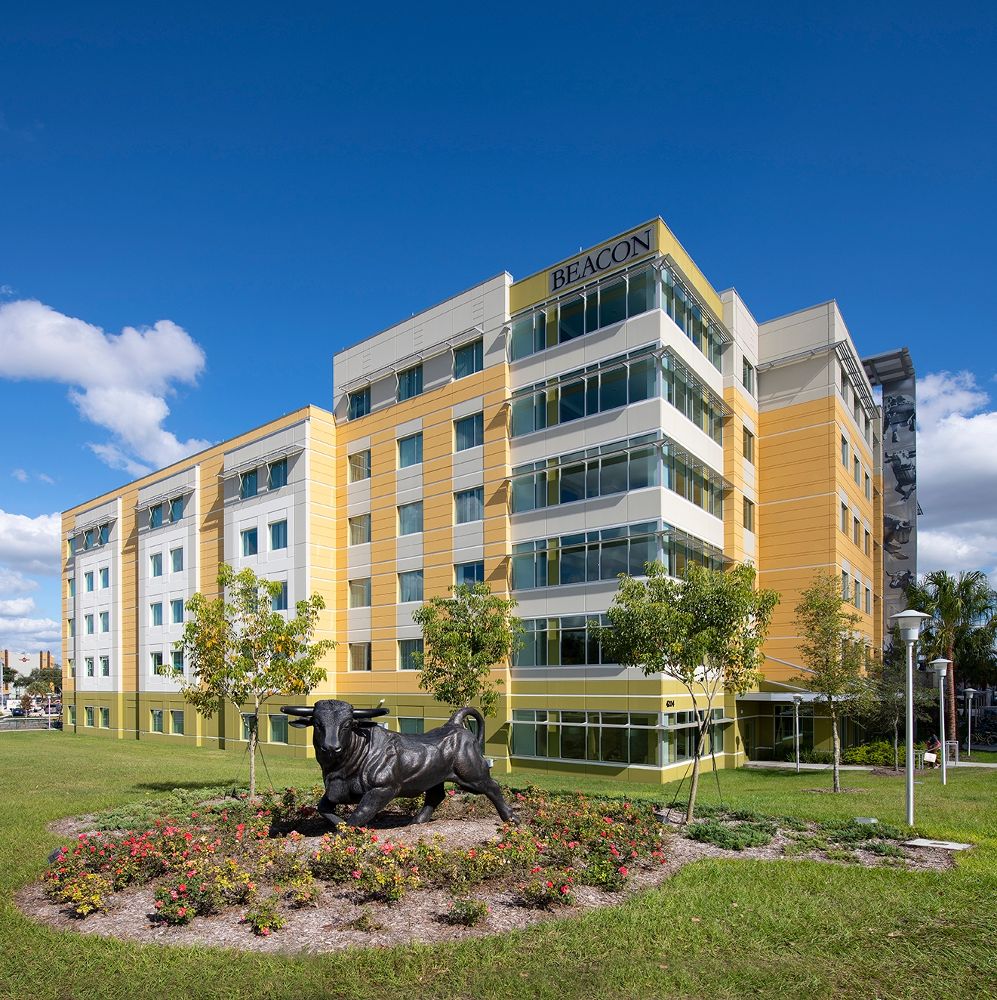Housing and Residential Education prepares for changes in fall

From staying up late in the communal lounges and hanging out with hallmates to having one-on-one meetings with resident assistants (RAs), the student residential experience will look different in the fall as Housing and Residential Education works toward adapting its curriculum to COVID-19.
As a way to promote the health and safety of students, Housing and Residential Education is implementing new measurements across residential halls to encourage social distancing and follow Centers for Disease Control and Prevention guidelines while still meeting its goals to provide a safe environment for students.
Assistant Dean and Director of Residential Education Julie Leos said Housing and Residential Education had to think of new ways to engage the community as a result of COVID-19.
While hanging out in the communal lounge with hallmates is one of the key aspects of the residential experience, Leos said they will have to reconfigure how residents use the space from now on.
“The hardest part is going to be smaller gatherings that we really like having because it’s a time when a hall can form a cohesive bond,” Leos said.
“I don’t think we will be able to do that for a while and also some of the lounges are going to be reconfigured where there might not be as much furniture.”
Besides reconfiguring the communal lounges, Leos said they will start scheduling times for when different floors can use larger spaces to hold meetings.
“We have to get better at scheduling so that we can use some of our larger spaces to hold meetings that full floors can go to without any fear and where everybody can have enough space,” Leos said.
“We’re just going to have to use our space more wisely if we want smaller pockets of halls to be able to meet and also be mindful of what the university is telling us at the time.”
Although it won’t be the same, Leos said Housing and Residential Education will “build upon getting back to some type of normalcy.”
“We still value the same things and we still want students to learn and grow in the same way,” Leos said. “But now, we have to flip around how we do it.”
Among the modifications in the housing guidelines, RAs will also see changes, including the use of face shields and face coverings, when performing their duties.
As part of their duties, RAs go on nightly rounds of the residential areas to check the residents’ safety as well as promote community gatherings.
Social rounds, also referred to as community rounds, encouraged the interaction between RAs and residents as well as to check up on others who have not been socializing.
With COVID-19, Leos said they stopped doing social rounds in the spring as they didn’t have face coverings and shields to ensure the community’s safety.
In preparation for fall, Housing and Residential Education will be testing in the summer how the use of face masks and shields will look from now on, especially when it comes to one-on-one interactions with residents.
Within the housing curriculum, RAs host intentional conversations, which are one-on-one interactions to check on the residents’ campus life as well as academics and challenges they might be facing at the moment.
Under new guidelines, one-on-one interactions might be harder to conduct in person, according to Leos.
“We’re thinking that if there is an ability for us to still do some of these things but do it remotely, we’re going to do it … we still want to talk to students, so maybe we can do it through [Microsoft] Teams,” Leos said.
While the use of Microsoft Teams will be seen more often in residence halls, Leos said Housing and Residential Education is working toward giving students more options when it comes to one-on-one conversations.
“Crisis doesn’t stop for a pandemic and students will have other things that they’re going through that may not be appropriate to respond to via Teams,” Leos said. “There are times when you just have to go to a person and ask ‘what’s wrong and how can I help you?’
“We’re trying to work that out because part of our curriculum is that we can make individualized relationships and help them and get them the right support.”
As Housing and Residential Education continues to implement its traditional curriculum, Leos said they will continue to use Canvas for the upcoming semesters through “Bulls in the Cloud.”
Created in the spring after classes shifted to remote instruction, “Bulls in the Cloud” is a Canvas module bringing together all residence halls through activities and livestreamed events, including live meditation sessions and career readiness, as well as the ability to ask questions of staff members during their office hours.
“When we went remote in the spring, pretty immediately we moved all of our students onto a Canvas module called ‘Bulls in the Cloud,’” Leos said. “It was so cool because what we did was basically say, ‘all right, well we can’t meet in person and some of you don’t want to connect with us at all because this is a lot for you but some of you really need that connection.'”
Although the student residential experience might look different moving forward, Leos saw opportunity in the middle of a crisis.
“In many cases, and I’ve been a broken record about this throughout campus, is that the answer for fall, we’ve never seen it,” Leos said. “We’ve never lived this and therefore what we’re coming up with can’t even resemble what we’ve ever done.
“It may be an opportunity for us to change what we always wanted to change and we never had the time. It’s tough, but we’re going to have to do it because at the end of the day, students are going to be here and they’re going to depend on us to help them through this process.”







